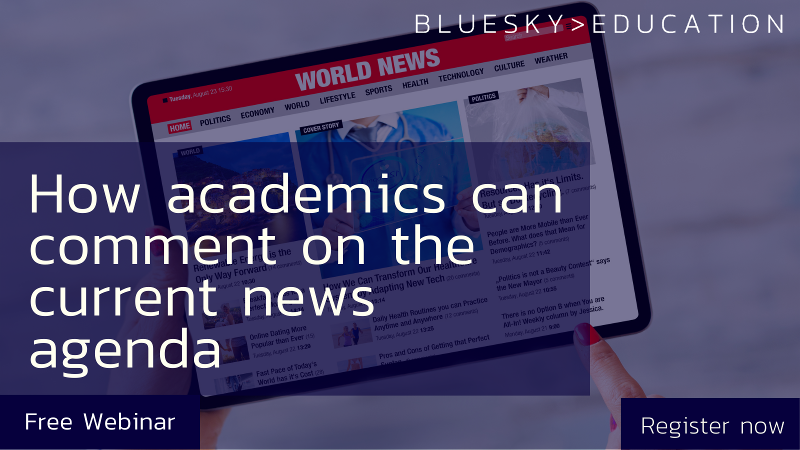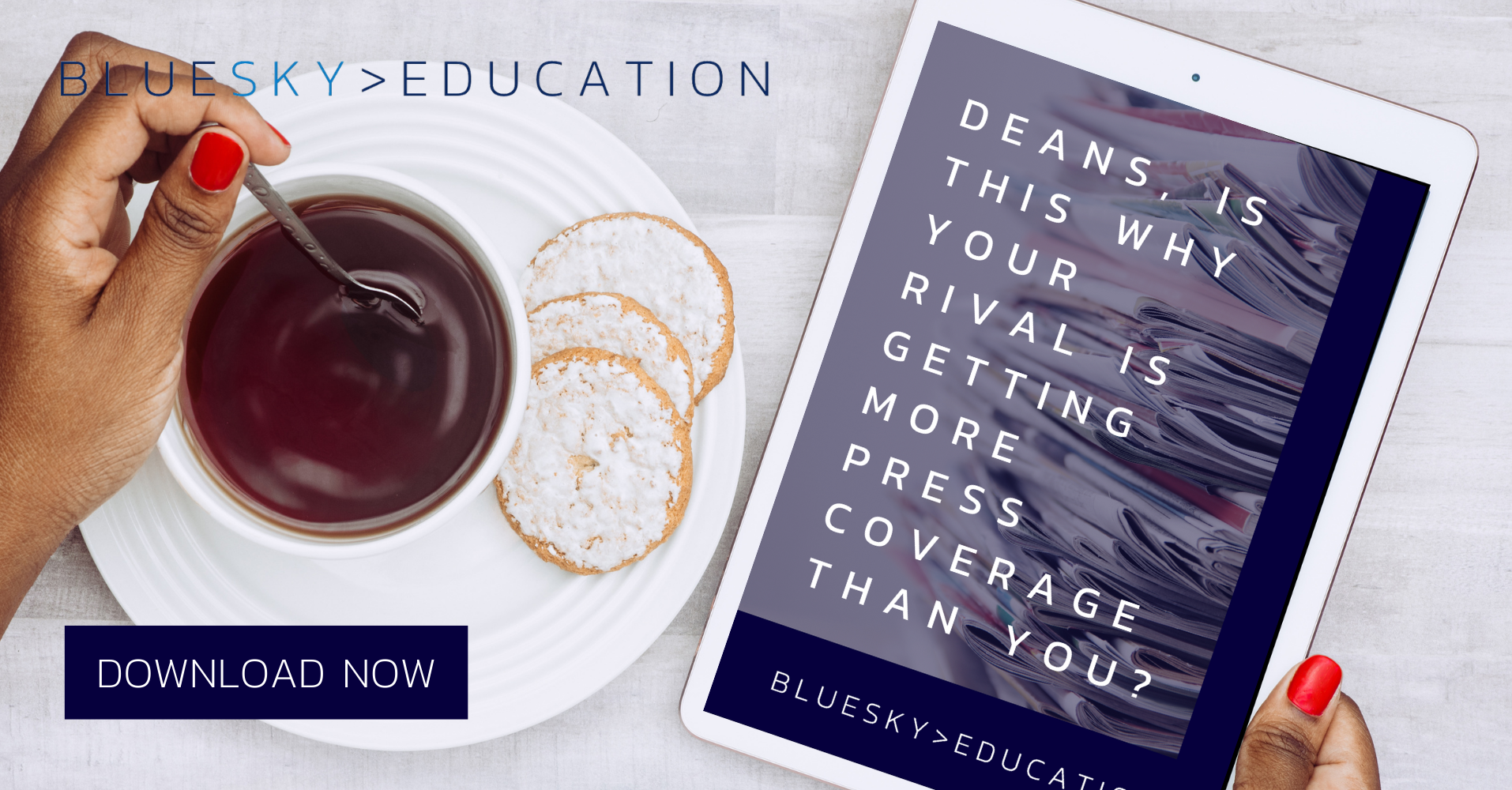Academia and the media go hand in hand, and today business schools and universities are becoming increasingly aware of why engaging with the media is valuable for not only their professors, but also their institutions as a whole.
At BlueSky Education, we know that engaging with the media allows professors to connect with the public and communicate the relevance and impact of their research with a much wider audience outside of their circles.
In depth articles make research much more accessible
Professors can share their research with the media in a number of ways. This includes speaking to journalists on the phone and in person for interviews, providing comment for wider articles, appearing on podcasts, TV, radio, and much more. However, from a research perspective, one of the most effective ways for securing relevant and in-depth coverage is by writing articles for targeted publications, sharing their expertise in a more accessible, journalistic format.
Chirantan Chatterjee, Professor at the University of Sussex Business School, did this perfectly in a recent article for The European Magazine. Based on his own research, in this article Professor Chatterjee shared his insights about how regulation does not necessarily stifle innovation, as many tech firms claim, but can in fact encourage a more sustainable, ethical side of proceedings. By writing this article for The European, the professor was able to reach a much wider business focused audience on an important topic.
Appearing in the media can support greater faculty satisfaction
As well as reaching a more targeted audience, engaging with the media can also give professors much greater visibility and recognition amongst their peers. This visibility can be crucial for not only their own professional advancement, but it can also be hugely beneficial for the institutions they work for.
Indeed, visibility can lead to more partnerships and funding opportunities, but for universities and academic departments, positive media coverage of faculty members can also contribute to recruitment efforts for both students and staff. It can also boost morale and job satisfaction among existing faculty members, knowing that their work is being recognised and appreciated beyond their school community.
Media relations for professors leads to a sought-after reputation
So, reputation is everything, and media appearances ultimately enhance a professor's reputation as an expert in their field. Being quoted or interviewed by reputable media outlets can advance credibility to their expertise and research, establishing them as thought leaders within their respective fields.
This can lead to many more opportunities for the professor, which also shines a wonderful light on the business school or university that they are part of. An example of a professor who has become widely known as being a top voice within his sector is Alain Goudey – Associate Dean for Digital at NEOMA Business School.
Alain regularly writes articles, comments, and interviews for technology focused and top-tier media, including the highly sought after Financial Times. As a result of this exposure, Alain now speaks frequently at high profile conferences and events, and has become extremely well known within the business education sector for his knowledge on AI and technology.
More engagement from the Dean can increase the status of the school
Another professor that has worked with the media effectively for many years now is Federico Frattini, Dean and Professor at POLIMI Graduate School of Management. Dean Frattini has written many in depth articles for top business and education publications, particularly on the themes of purpose, innovation, sustainability, and leadership. For example, in this recent article for the European Business Review, Dean Frattini shares his insights into what management skills are needed for the future, and how business schools can develop these skills through their teaching.
As a result of this media exposure, Dean Frattini is prominent within the sector, and POLIMI Graduate School of Management is known to be one of the best business schools in the world for providing an education with purpose at its core.
Overall, media relations play a crucial role in enhancing the impact, visibility, and reputation of professors, benefiting both the individuals themselves and the institutions they are affiliated with. For more information about how we can help with this, please get in touch.
Olivia is experienced in delivering targeted media visibility for her clients through her relationships with key journalists and editors, from important dedicated trade press such as Global Education Times, BusinessBecause, HR Director and Finance Monthly to major international media like The Financial Times, VICE and Forbes. This helps her to consistently understand trends in the media agenda and effectively capitalise on them for her clients.







